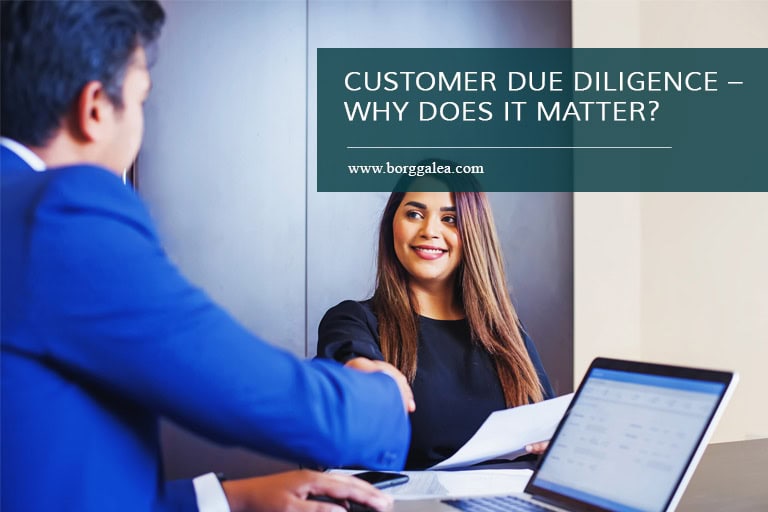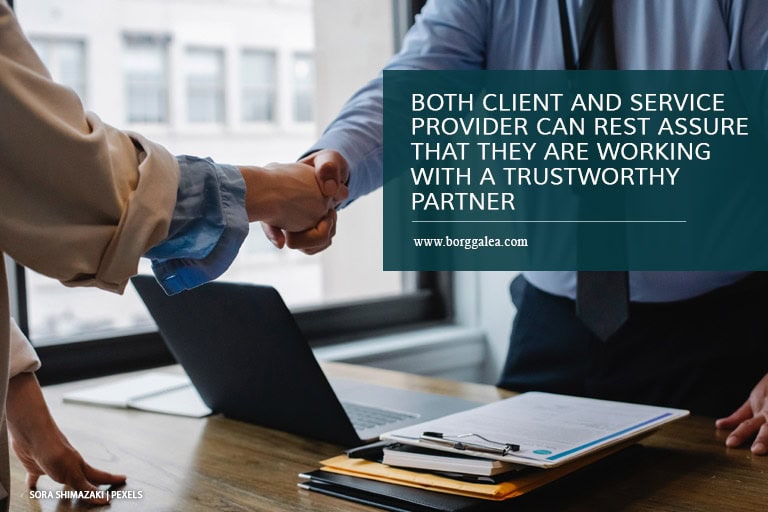Nowadays, everyone seems to be talking about customer due diligence. In the past couple of years in Malta, we’ve experienced a paradigm shift in the way financial business transactions are conducted. Just a few years ago, it was the norm to walk into a bank for the first time and exit with a bank account, those days are now long gone. Similarly, if one needs professional accounting services or to buy a property, you need due diligence.
Those who are not accustomed perceive due diligence as a mountain to climb. Others feel reluctant to provide professionals with their personal information with the most common question:
“Why should I comply with your request for information? Isn’t personal data… personal?”
While we certainly do understand that many feel uneasy about sharing their confidential information, especially when no prior business relationship has been built, this article seeks to establish the reasons why we conduct Customer Due Diligence and how you may end up benefiting in the long run, if you participate.
Introducing Customer Due Diligence (CDD)

It is thanks to Malta’s increased efforts to shore up its compliance with international Anti Money Laundering and the Combatting of the Financing of Terrorism regulations that saw its removal from the infamous FATF’s Grey List in mid-June 2022. Therefore, in an effort to maintain the jurisdiction’s clean position, national regulators have imposed more stringent customer due diligence requirements on us ‘subject persons’. Accountants, auditors, notaries, banks and investment brokers are some of the most common types of subject persons in Malta. One does not elect to become a subject person, but a firm or individual is considered to be a subject person based on the type of service that they offer.
As a result, prior to conducting any business with our clients, Borg Galea & Associates, as any other subject person in Malta, is required to first gather extensive customer due diligence information. The primary function of CDD is to limit the risk that our services may be misused by clients that have less-than-honest intentions. Therefore, we are required to obtain enough information on both current and prospective clients to ensure that their integrity is intact and to avoid becoming conduits for the proceeds of crime. This means that only clients with the most honest of intentions will be serviced.
A number of checks are carried out by our compliance department before accepting any engagement. Through this process, we obtain sufficient information and supporting evidence to ensure that we:
- Know Who the Customer and Its Beneficial Owner(s) Are
This often entails analysing an entity’s entire shareholding structure until the person(s) owning 25% + 1 of the entity’s ultimate shares or voting rights is identified, or failing this, the person(s) having significant control over the entity are established. - Verify Whether That Person Is Who They Purport to Be
Where the identities of the above-mentioned persons are established, we are required to verify their identity through independent means, such as the verification of passport details and obtaining proof of address for individuals, or obtaining certificates of incorporation and good standing for bodies of persons, etc. - Determine Whether This Person Is Acting On Their Own Behalf
Identifying whether the person engaging us is who they say they are is crucial. Moreover, establishing that the beneficial owner is the identified person at the onboarding stage is even more critical for the mitigation of ML/FT risk. This is why we may ask whether there are any Powers of Attorney documents in place at every level of shareholding. - Establish the Purpose and Intended Nature of the Business Relationship With the Client
While being engaged in a statutory Audit or compiling a company’s annual accounts is a self-explanatory reason, we must establish the purpose and intended nature of any business that relates to any advice of a financial nature. - Formulate the Customer’s Ml/Ft Risk Profile
With all the information that is obtained at the onboarding stage, we are able to formulate a customer profile that ultimately determines whether the purported ML/FT risk is within our risk appetite. If this is not the case, no services will be provided. - Monitor The Relationship on an Ongoing Basis
Indeed, the expiration of one year (or less) or the detection of a change in shareholding, main object, registered name, registered office, directors, company secretary, adverse media, etc. triggers the need for monitoring. That is, given that the information obtained at the onboarding stage may not be sufficient to reflect its current business profile, it must be updated to stay relevant.
Ultimately, comparing the financial data gathered during a business relationship with the compiled business profile collated at the onboarding or monitoring stage helps us to identify, and to avoid transactions with individuals or entities looking to:
- Pass off manipulated financial statements as legitimate
- Strategically conceal the beneficial owner/s through the provision of financial advice
- Evade taxation
- Launder the proceeds earned from illicit activities
- Finance Terrorist organisations.
Benefits of Participating With Customer Due Diligence Information Requests

With the above in mind, the following potential benefits may arise for every client engaged with Borg Galea & Associates who willingly participates with our CDD requests:
- The high-level customer due diligence requirements imposed on all of our clients enable you to have peace of mind that your financial services are originating from an ethical service provider, residing in a trustworthy jurisdiction.
- Both the client and the users of its financial statements can take comfort from the reduced risk of relying on intentionally manipulated financial statements.
- Clients can be assured that our services are offered only to upstanding persons, meaning that there is little to no risk of transacting with a service provider that endangers your reputation.
- When receiving a copy of our Onboarding documents, you are free to use the compiled financial data to answer any requests for information from other service providers.
- Being accepted as a client, after passing from the Onboarding stage, makes you more likely to be referred to our trusted local partners.
However, detecting money laundering without the help of extensive and up-to-date customer due diligence information is a difficult endeavour. This is especially true when considering that information asymmetry also exists between us and the client. Therefore, we require your help in making all this possible.
For more information on the above kindly contact us at [email protected] or +35627037012.




